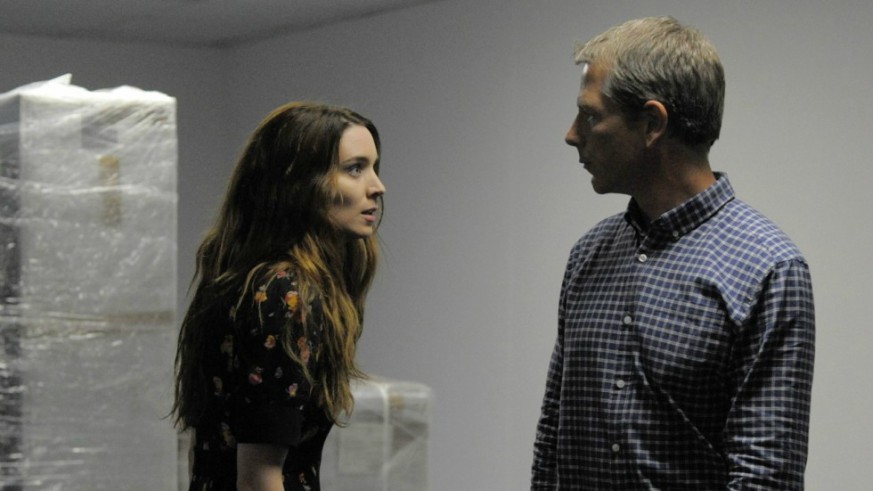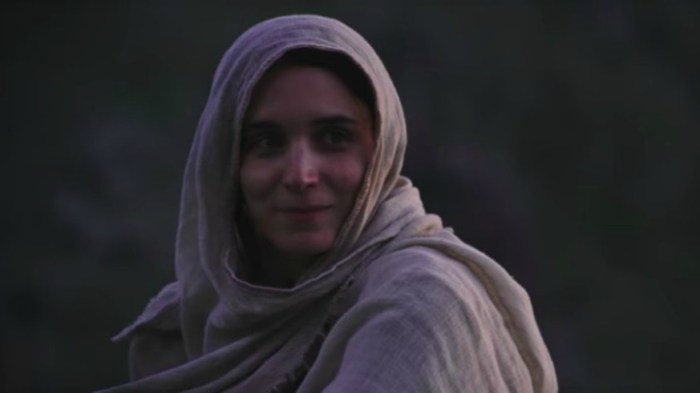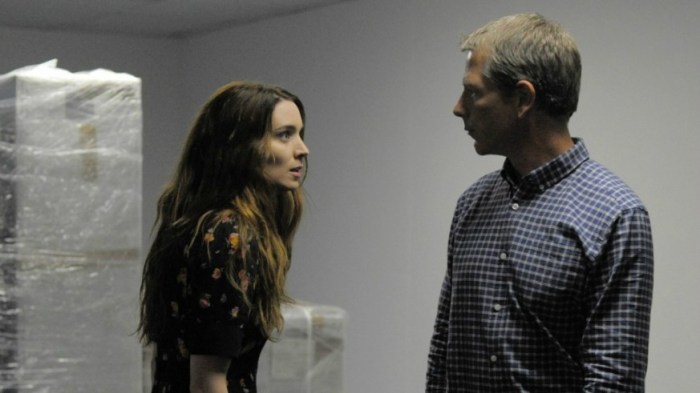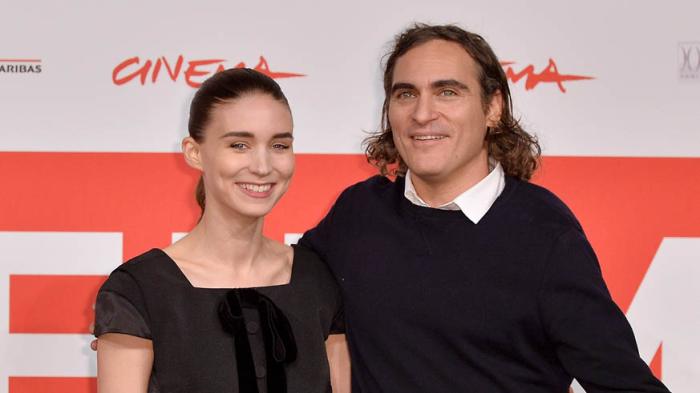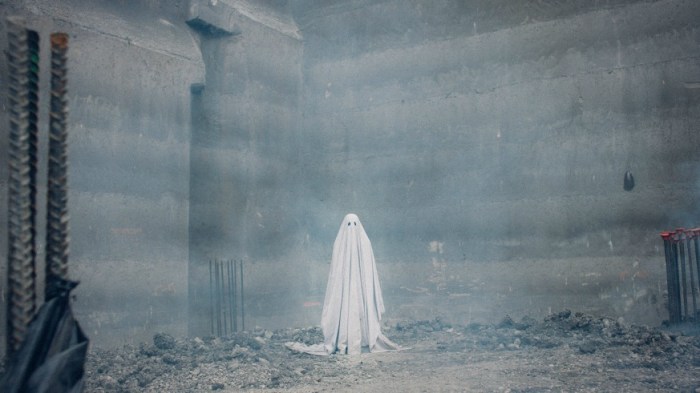Una prods and provokes its audience in such a direct and thought-provoking manner that it is impossible not to ruminate over its questions and themes long after watching it.
In Benedict Andrews’ proudly uncomfortable drama Rooney Mara’s titular character confronts Ben Mendelsohn’s Ray, Una’s former neighbor that had sex with her 15 years earlier when she was just 13. Ray was incarcerated for his actions, but Una is still burdened by the impact of their relationship.
I recently had the opportunity to speak to director Benedict Andrews and its titanic leading actors Rooney Mara and Ben Mendelsohn about “Una”, and they were obviously all very proud of their raw and complicated film, while also dumbfounded that they’d actually got it made.
What made you want to turn “Una” into a film?
Rooney Mara: “Just the feeling that stuck with me after I saw [the play]. I went to see it blindly, in a matinee, and I was just blown away by it … I can feel empathy for just about anyone. I feel that it is important to be able to do that. In making the film I only ever thought about it through Una’s perspective, so it’s really hard for me to talk about it as Rooney, because I still haven’t seen the film. But my experience with the material is so wrapped up in my feelings of it. I don’t see her as just a victim. I see her as much more complicated than that.”
Ben Mendelsohn: “I knew what I was going into when I signed up for it. You probably struggle with it more in this period when you have to try and account for it. Going into film it it’s thrilling, it’s an amazing psychological thriller. I think there’s a time for thinking about the character, but it’s not when you’re doing it. Rooney is one of the most immediate actors I have ever worked with. It’s like table tennis, you’re very close, and you need to react because that ball is coming back over the net fast. When it was on song it was very uncomfortable but very exhilarating.”
Benedict Andrews: “When I watch it with an audience I am aware of this claustrophobia, but I also see it as this diving bell. You can feel the audience as they go deeper and deeper down with the two of them. It is an uncomfortable place, but they feel compelled to stay with them. We had to find the cinematic equivalent of how to take the audience ever deeper as the characters go deeper and deeper into themselves. It’s a real raw and uncomfortable space as she chases him down … Their relationship is so private. And part of that claustrophobia is that we’re drawn into that private knot between the two of them. That’s what the film is about in the end. It’s about this knot between the two of them that began when she was 13 and they both still can’t escape it 15 years later. She’s still looking for answers.”
What do you want audiences to take away from “Una”?
BA: “The film is very clear about the damage. There’s no condoning of what happened, it’s clear it fu**ed up a lot of lives. The film kind of intelligently unpacks a lot of the moral questions. You know, does someone have the right to a new life? What’s it like to not be able to let go of the past? That’s the beginning point. It’s not useful to go the cinema and be told what you already know. We already know this is wrong. That’s the starting point. That being reinforced in a black and white way isn’t useful. But to go into the space of the pain and the space of the questions right through to the very last frame of the film, where we follow them into this grey emotional space, where the desire, guilt, and love becomes incredibly mixed up. We want to get people talking and arguing about the story and our grander themes after the film is finished, and inviting the audience into this uncomfortable grey area provokes the conversation. That’s why we go to cinema and theatre and literature so we can zero in on these uncomfortable and torn places, and have empathy for them … I am incredibly gratified that there’s an audience for intelligent, provocative, and sensitive cinema. The film doesn’t aim to give easy moral lessons, or let people off the hook, but I believe the power of its strength is it is tender.”
How unique is it that “Una” was actually made?
BA: “It is a real hard film to get made. I wasn’t thinking about it. I was too naïve … Now I realize it’s a miracle that the film gets a release. Because of the subject matter.”
BM: “It’s very unusual that you get such a storied and deep exploration of character to character. In fact, I don’t think I’ve ever done anything that has the intensity of this with just one other character. Of just consequence, storyline, and just scenes. And I don’t think I ever will again because they don’t come along very often.”
BA: “That’s something specific to this. I don’t necessarily think all films should be like ‘Una.’ This is very special to this. This is a very claustrophobic encounter, and that is its specific flavor. My next film will be much more epic, because there are other notes to play.”
“Una” is now in cinemas.

